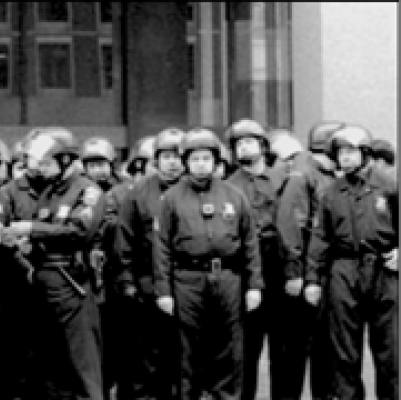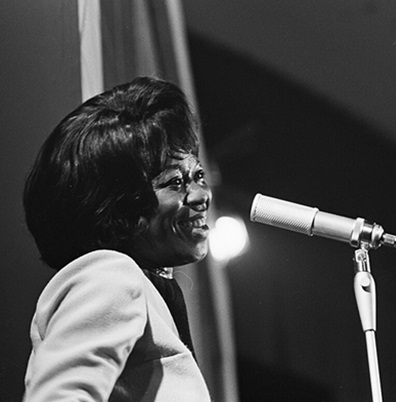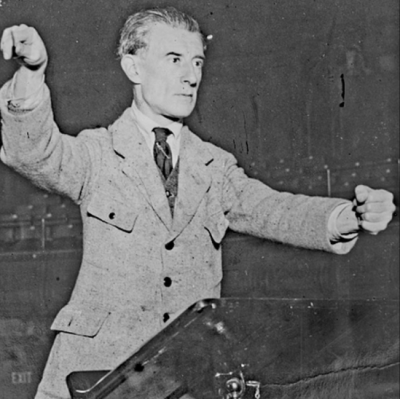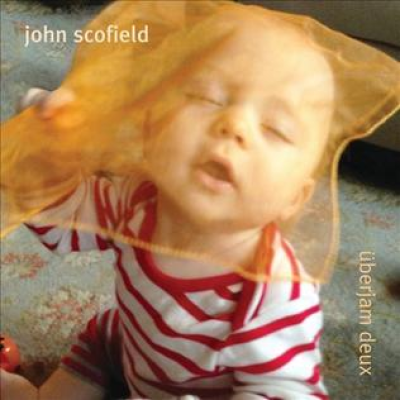.
.
New Short Fiction Award
Three times a year, we award a writer who submits, in our opinion, the best original, previously unpublished work.
Don Dewey of Jamaica, New York is the winner of the 38th Jerry Jazz Musician New Short Fiction Award, announced and published for the first time on March 5, 2015.
.
.

Don Dewey
.
*
.
Don Dewey has published 37 books of fiction, nonfiction, and drama for such houses as Little, Brown, Harper Collins, and St. Martin’s Press, including biographies on James Stewart, Lee J. Cobb, and Marcello Mastroianni, Hal Chase and Ray Arcel. His latest novel, All the Aliens in the Neighborhood, is now available online (soon in print) and upcoming novels The Fantasy League Murders and The Bolivian Sailor will be published in late Spring, 2015.
.
.
_____
.
.
.
Till’s Piano Lesson
by
Don Dewey
.
______
.
“You’re early, Till. I told you never come early.”
“Sorry. I guess my watch is off.”
“Buy a new one.”
Klein refit the crutches under his armpits and swung his crabbed legs back toward the studio, leaving Till to enter the living room for himself. Till didn’t like living rooms. He thought them banal in their predictable assembly of tables, chairs, lamps, and rugs. What he wanted to see someday was a living room with people who dropped dead as soon as they put a foot outside it. Living rooms should have been what they claimed to be.
Klein’s pupil in the studio seemed to be trying to erase his presence through sheer aggression. Had Mozart started that way? Till didn’t think so. If Mozart had chafed his tiny fingers the way the student had to be doing, grazing the wood of the adjoining note every time he aimed at the ivory, Wolfgang wouldn’t have had anything left for picking his nose. Genius simply wasn’t nourished under the wing of Edgar Klein.
Which was all right with Till. He had no love affair with Genius and wasn’t even on first-name terms with Talent. What Till liked about music was that he was totally disarmed before it. He knew the names of tunes, but in the best of cases recalled only a line or two from any particular one. Theories about music bored him; on-and-off attempts to penetrate them had lasted only a few pages before his retreat to hunting magazines. As for musicians, he knew the names of every first violin who had ever cowed under Toscanini, of every drummer who had ever sat in with Miles Davis, and of every actor who had ever played Porgy, but he knew that was sycophancy, not music. But it was also precisely because he couldn’t appreciate music technically, intellectually, or vicariously that he was drawn to it. It was an area so impervious to him it merited his attention for this fact alone. Its exclusivity made him exclusive. By being rejected so absolutely he became music’s equal — a status he had no intention of losing. In short, as he sat in Klein’s living room waiting for the start of his lesson, Till had the world on a string, was sittin’ on a rainbow, had the string ’round his finger, but no more than that. Lucky Till, he wasn’t in love. He only had to worry about Klein not running out of patience and himself not running out of cash for paying the old grouch twice a week.
Till picked up a small glass ashtray from the coffee table. At the center of the tray was the name of an Atlantic City hotel surrounded by a circle of smiling fish. Being a non-smoker, Till considered ashtrays useless; not being a collector of the past, he thought them oppressive in their reminders of bygone entertainment and petty thievery. But standing up from the couch and taking a closer look around, he saw that Klein was of another opinion, having an apparent fetish for ashtrays from far and farther places. There was a Montreal hotel, a Des Moines hotel, a German brandy, an Italian beer, even a Danish mermaid hovering over a combination ashtray-matchbox. Till thought the collection depressing, suggesting that the old man had ventured over two continents when he had still been able to walk and was now resigned to covering all that with ashes.
Till had an impulse. Switching his keys to the handkerchief pocket of his jacket, he swooped up the smaller trays and put them in his side pockets. The larger mermaid stumped him until he decided it was warm enough to shed his jacket altogether. He worked rapidly in his shirtsleeves, sticking the Atlantic City fish and the mermaid inside the jacket, then trying smooth ways of walking with the coat under his arm. After a couple of tries he was confident he could carry the jacket into the studio, lay it on a side chair, take his lesson, then leave without arousing Klein’s suspicion.
He was still congratulating himself for his ingenuity when the clatter from the next room abruptly ceased and Klein started thudding around on his crutches. Till returned to his perch on the couch, his jacket a ball under his arm, his eyes trying to be nonchalant about watching the doorway to the hall. His pose almost came undone when Klein, instead of following his routine of accompanying students to the front door, suddenly just loomed up in the doorway while the boy continued on his way out alone. “All right, Till. I’m ready for you.” Till cackled nervously. “I say something funny?”
“No.”
Klein dropped his leeriness to the ball of a jacket. “You treat your clothes the way you treat my instrument.”
“Needs a pressing anyway.”
“My piano don’t. Come on. Let’s get this over with.”
Till clutched his jacket tightly, imploring the ashtrays not to click together, as he entered the dim lights and faded upholstery the old man called a studio. Every time he entered the hot room, he thought not so much of beginners learning scales as of exhausted old pianists returning in their dotage to give back the basics they no longer needed.
“Put that heap in that chair there. Cat’ll like it.”
Till did what he was told as Klein dropped himself into the recliner that had been pushed up next to the piano bench. “I was thinking about you today, Till,” he said. “Don’t take it as a compliment. I think about things all the time. I think about paying bills. I think about walking into a room on my own feet like you just did. Thinking counts for shit.”
“No point being maudlin.”
“No point being a cripple, either. What the hell you doing there?”
“Just trying to make the cat comfortable.” He meant it, too: The last thing he needed was the cat jumping up on the chair and pawing at unexpected lumps in his jacket.
“You surprise me, Till.”
“I like cats.”
“Guess so. If you had half a brain, you’d hang it over the back instead of spreading it out like that.”
Till was alarmed by the old man’s suddenly shrewd look — the more so because he was simultaneously removing a cigarette and matches from his pocket. Klein’s stare remained fixed on him as he slid on to the piano bench and made a show of closing the exercise book left by the student before him. “Ready to start.”
“On one condition.”
“Condition?”
Klein tossed his burning match into another school of happy Atlantic City fish on the arm of the piano. “You tell me what you’re getting out of all this.”
“Out of what?”
“What you come here for, what else?”
“The music, naturally.”
Klein looked incredulous. “I put on the radio, I hear music. What we spend your money and my time on here is your money and my time.”
It was the conversation Till had been dreading for weeks, but tonight it came as a relief: At least they had gotten off his jacket. “I’m a slow beginner. I told you that the first day.”
“There’s slow and there’s slow. At five, most kids know they have ten fingers. At ten, they stop trying to poke them into wall sockets. At your age, they shake my hand and thank me for not wasting more of their money.”
“That’s not what you told me when I first came.”
Klein exhaled his smoke with a sigh. Not for the first time, Till thought the man’s broad, granite face and overdeveloped shoulders belonged as a bust atop the piano. “Okay, it isn’t your hands,” he said. “A snowman with mittens will pick out notes if he keeps at it.”
“Then what’s the problem?”
Without moving his eyes, the old man tapped an ash onto the keyboard. “What do you see?”
“See? Ashes on a piano.”
“And what did you hear when I flicked them there?”
“Hear?”
“I heard something. You didn’t? Listen again.”
Till watched in bewilderment as Klein took a long drag on his cigarette, then tapped the new ash onto the back of his other hand. The old man smiled at the tiny start he gave. “Hear it then?”
“I don’t hear anything.”
“Pain, Till! Pain is what you heard!”
“Oh.”
“Maybe not screamed to the rooftops. I’m not young anymore. The skin hardens. But still pain. And you should also hear it when I tap ashes onto the keyboard………….Don’t believe it? Of course you don’t. That’s why you’ll never be a pianist. You don’t respect your instrument, Till. You don’t want it to communicate with you. When you sit on this bench, you’re a would-be conqueror. No dialogue, just monologue. You don’t play, you dictate. Granted you’re not even competent at that yet, but some day practice could make perfect. Only you won’t practice with me. I refuse to be your accomplice.”
Till was still taking in the outburst as the old man sat back in his recliner and glanced over at the jacket. “In all the time you’ve been coming here, I’ve seen you make a gesture towards something outside yourself only once. Know when? Just now. Everybody needs something to care about, and with you it seems to be a cat. For that flea-tree you showed consideration. If I had a pet shop, you’d be welcome here every night. But I don’t have a pet shop. I’m trying to save you money, you understand?”
“It’s my money.”
“But my time. Want I should be more brutal? I don’t throw away my money training for the four-minute mile, you shouldn’t throw away yours coming here twice a week.”
A giddiness washed over Till until he had to turn away. He thought about thundering out a melodramatic chord, but the realization he couldn’t manage it after months of lessons only fed his convulsion. He’d known more about the piano before he’d ever heard of Edgar Klein!
“You’ve taken everything I can give you, Till. Use it for whatever it’s worth.”
“Including your advice?”, he asked, calming himself.
Klein got to his feet as he usually did — first testing the waters, then grabbing his crutches and locking them under his arms. “A waste of time sulking. On me because I won’t change my mind. On yourself because you’re probably already working out how to spend your time instead of coming here. I don’t say that as an insult. You look like a bullshitter who’ll never stay down long. You’re resilient, Till. Now hold on a minute while I get the money for the lessons you’ve paid for in advance.”
As Klein started out, Till had an impulse to call after him, to tell him the money would cover the cost of the ashtrays. But he said nothing. To get kicked out was one thing, to quit another. He wanted every penny back for what he had paid but not received.
At the front door, Klein was still disapproving of the way Till carried his jacket. “No respect. It shows even in how you treat your clothes.”
“That’s what tailors are for, right?”
“So shoot yourself. That’s what undertakers are for, right?”
“Mind if I ask something?”
“What?”
“Ever been to Europe or Canada?”
“No. Why?”
“What about the Midwest? Around Des Moines?”
“What the hell should I go to Des Moines for?”
“Change of pace. A vacation, maybe.”
Klein began swinging the door closed. “For a vacation I sit on my brother-in-law’s porch in Atlantic City watching schmuks walking in the sand. I like seeing how they labor along. That answer your question?”
“In part.”
“Take what you can get. Good Night, Till.”
.
______
.
.
.
.
.














































I’ve had about five hundred music students. I’ve never seen one act like this, nor have I seen a teacher act this badly. The story ends up in the air. I got nothing out of it. What year did it take place to explain the presence of the cigarettes?
When I was a kid I had a despicable piano teacher who would call me “dumm kopf” (stupid idiot) during the lesson. He would frequently excuse himself from the room and go into the kitchen and make out with his wife! He was a miserable excuse for a teacher and frankly one of the reasons I stopped playing music. Perhaps that is why this story resonated with me and with other members of the the panel making this decision. I understand you may not like the story, Lawrence, but lousy music teachers do indeed exist.
I enjoyed this story very much. Clever way to handle rejection. Dialogue super; I can see why Mr. Dewey has published 37 books of fiction!
I enjoyed this story very much. Clever way to handle rejection. Dialogue super; I can see why Mr. Dewey has published 37 books of fiction!